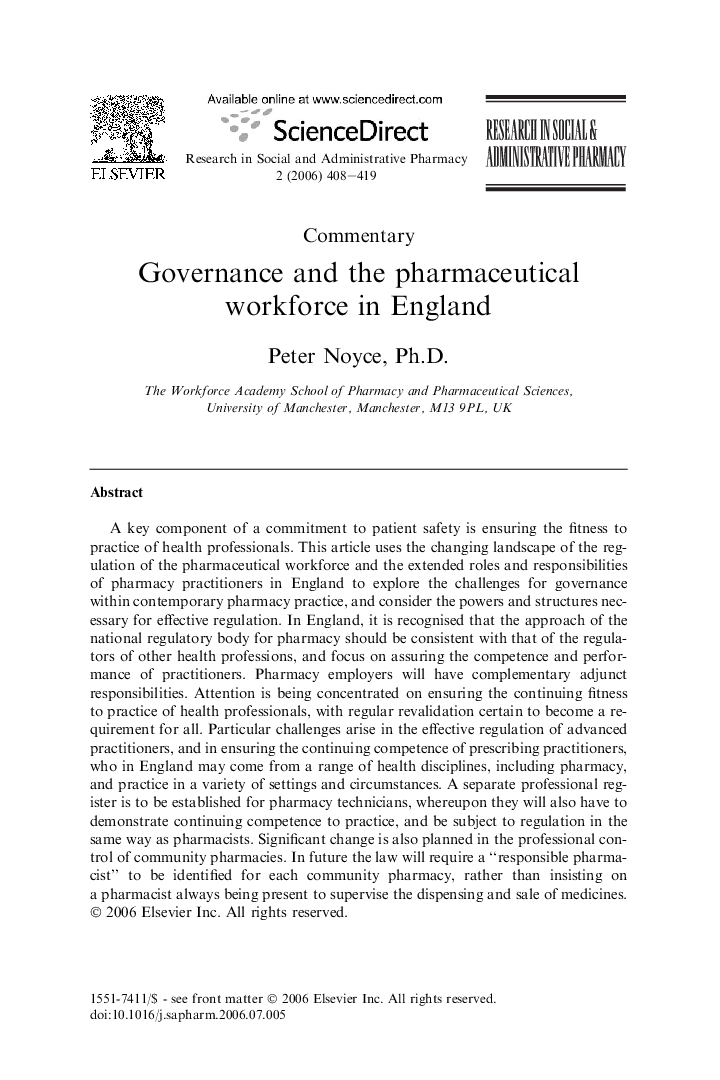| Article ID | Journal | Published Year | Pages | File Type |
|---|---|---|---|---|
| 2509038 | Research in Social and Administrative Pharmacy | 2006 | 12 Pages |
A key component of a commitment to patient safety is ensuring the fitness to practice of health professionals. This article uses the changing landscape of the regulation of the pharmaceutical workforce and the extended roles and responsibilities of pharmacy practitioners in England to explore the challenges for governance within contemporary pharmacy practice, and consider the powers and structures necessary for effective regulation. In England, it is recognised that the approach of the national regulatory body for pharmacy should be consistent with that of the regulators of other health professions, and focus on assuring the competence and performance of practitioners. Pharmacy employers will have complementary adjunct responsibilities. Attention is being concentrated on ensuring the continuing fitness to practice of health professionals, with regular revalidation certain to become a requirement for all. Particular challenges arise in the effective regulation of advanced practitioners, and in ensuring the continuing competence of prescribing practitioners, who in England may come from a range of health disciplines, including pharmacy, and practice in a variety of settings and circumstances. A separate professional register is to be established for pharmacy technicians, whereupon they will also have to demonstrate continuing competence to practice, and be subject to regulation in the same way as pharmacists. Significant change is also planned in the professional control of community pharmacies. In future the law will require a “responsible pharmacist” to be identified for each community pharmacy, rather than insisting on a pharmacist always being present to supervise the dispensing and sale of medicines.
